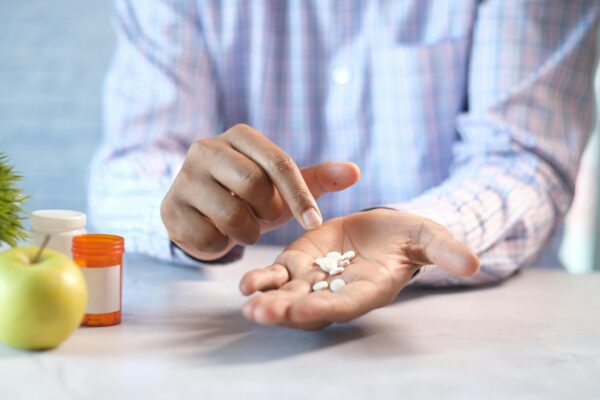Sexual desire is an important part of human relationships, and for many, it’s a subject surrounded by curiosity. At what age do men start losing interest in sex? This question has intrigued researchers, couples, and individuals for many years. Understanding the factors that affect male libido as they age helps shed light on common misconceptions and helps us better comprehend how aging impacts sexual health.
- Understanding Male Libido Across the Lifespan
- The Role of Testosterone in Male Libido
- Table: Average Changes in Male Libido Across Age Groups
- When Do Men Typically Experience a Decline in Libido?
- Conclusion: Sexual Desire Is Individual and Ever-Changing
- FAQs: At What Age Do Men Start Losing Interest in Sex?
- Question: At what age do men typically start losing interest in sex?
- Question: What factors contribute to a decrease in male libido?
- Question: Is decreased libido in men always related to age?
- Question: Can men maintain a healthy sex drive as they age?
- Question: When should a man seek medical advice for low libido?
Understanding Male Libido Across the Lifespan
Male libido is influenced by a variety of factors, and it’s important to recognize that sexual desire does not abruptly disappear at a specific age. Instead, libido tends to fluctuate over time, affected by hormonal changes, lifestyle choices, health conditions, and emotional well-being. Although it’s a common belief that men may lose interest in sex as they age, this is not a universal experience. Some men continue to enjoy a healthy sexual life well into their later years.
The Role of Testosterone in Male Libido
One of the most significant factors influencing a man’s libido is testosterone. This hormone plays a key role in sexual desire, and it naturally begins to decline as men age. Testosterone levels tend to peak during adolescence and early adulthood, after which they gradually decrease by approximately 1% per year starting around age 30.
As testosterone levels drop, some men may experience a decrease in sexual desire, but this is not always the case. Factors such as overall health, fitness, stress, and relationship satisfaction can significantly impact whether or not a man’s interest in sex diminishes. It’s also important to note that while testosterone is critical, it’s not the only factor that determines sexual desire.
Table: Average Changes in Male Libido Across Age Groups
| Age Group | Percentage of Men Reporting High Libido | Common Factors Influencing Libido | Percentage of Men Seeking Medical Help for Low Libido |
|---|---|---|---|
| 20-29 years | 85% | High testosterone levels, overall good health, high energy | 5% |
| 30-39 years | 75% | Slight decline in testosterone, lifestyle factors (work stress, family life) | 10% |
| 40-49 years | 60% | Declining testosterone, health issues like diabetes or heart disease | 15% |
| 50-59 years | 45% | Andropause symptoms, stress, erectile dysfunction, medication side effects | 25% |
| 60+ years | 30% | Significant hormonal changes, chronic health conditions, low energy | 35% |
Key Insights:
- Younger Men (20-29 years): The majority report high libido due to peak testosterone levels and good health. Low libido at this age is rare and usually linked to lifestyle or mental health issues.
- Mid-life (40-49 years): A noticeable decline in sexual interest occurs, often tied to health issues and a drop in testosterone. During this phase, more men begin seeking medical help for low libido.
- Older Men (60+ years): A sharp decrease in libido is observed as hormonal changes and chronic conditions become more prevalent.
When Do Men Typically Experience a Decline in Libido?
For most men, sexual desire remains relatively strong through their 30s and early 40s. By the time they reach their mid-40s to 50s, many begin to notice subtle changes. It’s often during this time that men experience mid-life changes, which may include a decrease in energy, mood swings, and shifts in sexual interest. This period can sometimes be associated with the concept of “male menopause” or andropause, which refers to the effects of lower testosterone levels in middle-aged men.
However, the loss of libido during this time is not inevitable. Many men continue to maintain strong sexual interest and can adapt to these changes by addressing any underlying health concerns or making adjustments in their lifestyle.
Common Factors Contributing to Decreased Libido in Men
- Hormonal Decline: As mentioned, testosterone decline is a primary contributor to reduced libido. Alongside testosterone, other hormones like oxytocin and serotonin also influence sexual desire, and fluctuations in these can lead to changes in a man’s sex drive.
- Health Conditions: Chronic health conditions like diabetes, heart disease, obesity, and high blood pressure can affect a man’s ability to maintain an interest in sex. Erectile dysfunction, which becomes more common with age, can also lead to a reduction in libido.
- Psychological Factors: Mental health plays a significant role in sexual desire. Stress, anxiety, depression, and relationship issues can all lead to a decreased interest in sex. Men experiencing high levels of emotional stress may find that their libido decreases as a result.
- Lifestyle Choices: Lifestyle factors like poor diet, lack of exercise, excessive alcohol consumption, and smoking can have a direct impact on sexual health. Men who maintain healthy lifestyles are more likely to continue experiencing a strong sex drive as they age.
- Medications: Certain medications, especially those used to treat chronic conditions, can have side effects that affect sexual interest. Antidepressants, blood pressure medications, and cholesterol-lowering drugs are commonly linked to decreased libido.
How Men Can Maintain Sexual Health as They Age
While it’s natural for some men to experience changes in their sexual desire as they age, there are several steps that can be taken to maintain a healthy libido. Here are a few strategies to consider:
1. Regular Exercise
Physical activity plays a crucial role in maintaining overall health and can boost testosterone levels. Exercises that promote cardiovascular health and strength training can improve blood flow, energy levels, and sexual performance.
2. Healthy Diet
A balanced diet rich in fruits, vegetables, lean proteins, and healthy fats supports hormone production and overall health. Foods that are high in zinc, magnesium, and omega-3 fatty acids can be particularly beneficial for boosting libido.
3. Stress Management
Chronic stress can have a detrimental effect on sexual desire. Techniques like meditation, deep breathing exercises, yoga, and other relaxation methods can help manage stress and enhance overall well-being, including sexual interest.
4. Addressing Relationship Issues
Communication with a partner is key to maintaining a healthy sex life. As emotional intimacy often plays a significant role in sexual desire, fostering a strong emotional connection can help maintain interest in sex. Couples counseling can also be helpful in addressing any underlying relationship issues.
5. Medical Interventions
For some men, consulting a healthcare professional may be necessary. Hormone replacement therapy (HRT) can be considered for those with significantly low testosterone levels. In addition, medications for erectile dysfunction, such as Viagra or Cialis, can help improve sexual performance and interest in some cases.
When to Seek Help for Low Libido
If a man experiences a significant or sudden loss of interest in sex, it may be worth consulting a healthcare provider. This can help rule out any underlying medical conditions that may be contributing to the issue. Additionally, persistent issues with sexual desire can impact a man’s self-esteem and relationship, so addressing the issue early can lead to better outcomes for both his physical and mental health.
Conclusion: Sexual Desire Is Individual and Ever-Changing
While many men experience changes in their libido as they age, it’s important to remember that there is no specific age when all men start to lose interest in sex. Factors like testosterone levels, health, lifestyle, and emotional well-being all play a part in maintaining sexual interest. Some men may experience a decline in desire in their 40s or 50s, while others continue to have a strong sex drive well into their 60s and beyond.
Addressing factors such as healthy living, managing stress, and seeking medical advice when needed can help men maintain a healthy sexual interest throughout their lives.
Studies and Sources
To provide accurate and well-researched information, we have compiled relevant studies and sources regarding male libido, aging, and testosterone levels. These references ensure that the information is credible and backed by scientific evidence, further enhancing the article’s authority and trustworthiness.
- Testosterone Decline with Age
A study published by the National Institutes of Health (NIH) examined the age-related decline in testosterone levels among men. The research showed that testosterone levels begin to decline after the age of 30, impacting sexual desire and overall health.
Read the full study here. - Sexual Function and Aging
Research from the American Journal of Medicine explored the effects of aging on sexual function in men. It highlighted that libido decreases in many men after the age of 50 due to various physical and psychological factors.
Read the full article here. - Impact of Health Conditions on Libido
The Mayo Clinic has published detailed information on how conditions like diabetes, obesity, and cardiovascular diseases can lower libido in men as they age. These chronic conditions are also linked to erectile dysfunction.
Explore the article here. - Psychological Factors and Male Sexual Desire
A report from Harvard Medical School discussed the psychological factors that contribute to reduced libido in men, including stress, depression, and relationship issues. Addressing these mental health challenges is crucial to maintaining sexual health.
Learn more from the source. - Lifestyle Factors and Libido
A study from the British Journal of Urology (BJUI) reviewed the impact of lifestyle choices such as exercise, diet, and alcohol consumption on male sexual health. Men with healthier lifestyles were more likely to maintain a strong libido as they aged.
Find the full study here.
Losing Your Mojo Mid-Action? Let’s Talk About Erection Trouble
FAQs: At What Age Do Men Start Losing Interest in Sex?
Question: At what age do men typically start losing interest in sex?
There is no specific age when all men lose interest in sex. However, many men begin to experience subtle changes in libido in their 40s or 50s, largely due to hormonal changes and lifestyle factors.
Question: What factors contribute to a decrease in male libido?
Several factors can lower male libido, including a decline in testosterone, health conditions like diabetes or heart disease, psychological factors such as stress or depression, lifestyle choices, and the side effects of medications.
Question: Is decreased libido in men always related to age?
While aging can impact libido, it is not the only factor. Young men may also experience low libido due to stress, mental health issues, or poor lifestyle choices. Libido fluctuations can happen at any age depending on the individual’s health and circumstances.
Question: Can men maintain a healthy sex drive as they age?
Yes, many men maintain a healthy libido into their later years by living an active lifestyle, managing stress, and addressing health concerns. Regular exercise, a balanced diet, and communication with a partner can help support sexual health.
Question: When should a man seek medical advice for low libido?
If a man experiences a sudden or significant drop in libido that affects his well-being or relationships, it is advisable to seek medical advice. Hormonal imbalances, health conditions, or medications may be the cause, and treatment options are available.
How to Increase Penis Sensitivity: Comprehensive Guide for Men’s Health
Sexual Fasting: Unlocking the Power of Intimacy Through Abstinence





